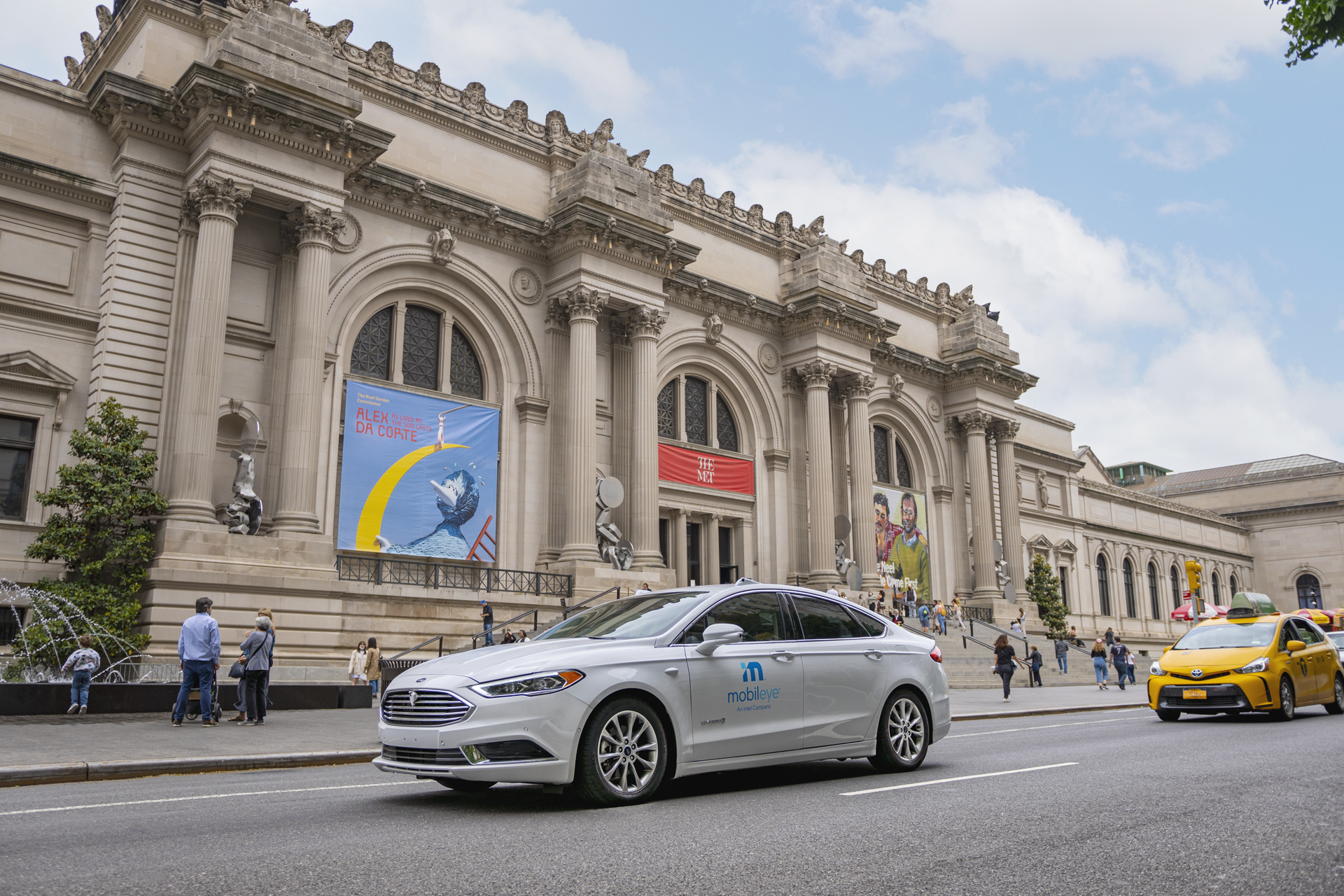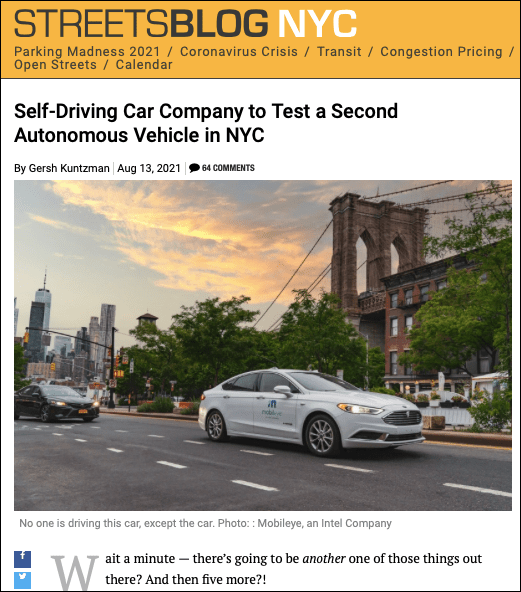Don't put the steering wheel into our hands!
A cross section of representatives of autonomous vehicle companies demanded that the city Department of Transportation loosen proposed rules that would require driverless cars to operate "more safely than a human driver" before they can be tested on the mean streets of this town.
At a hearing on Wednesday, about a half-dozen autonomous car makers and their advocates said the proposed rules [PDF] would turn New York City from an engine of innovation into a backwater that would set back the evolution of the potentially life-saving technology of computer-controlled cars and trucks that can move around without inferior human beings messing everything up.
“New York City has always been a place of creativity and innovation, but these rules would make New York one of the least hospitable cities in the U.S. for AV development,” said Montana Williams, director of State and Local Public Policy for the Chamber of Progress, an advocacy group.
“With the tremendous potential of AVs to make New York City a safer and more equitable city, it is so important to test, improve, and deploy autonomous vehicles without delay," she added. "For the sake of supporting those with disabilities, addressing food deserts, and reducing traffic deaths, DOT should reject these additional hurdles to New York’s autonomous vehicle future.”
Currently, only one company — Mobileye, a division of Intel — is testing AV cars in New York City, with hopes of deploying seven driverless cars, as Streetsblog recently reported. The company has released a 40-minute video of its driverless car performing more or less flawlessly in Manhattan and Queens — and, given that the vast majority of today's hundreds of thousands of city crashes result from driver error, the industry believes that it's only a matter of time before the public sees the benefits of getting humans out of the driver's seat.
"Crashes are caused by careless driving, driver inattention, failure to yield and speeding," said Wayne Weikel of the Alliance for Automotive Innovation, another advocacy group. "Will driverless cars be safer? Looking at the numbers of crashes today, how could they not be? Autonomous vehicle technology is the key to meeting Mayor de Blasio's Vision Zero goals."
The public — at least the few who testified at the brief DOT hearing — is definitely not convinced yet.
A Bay Ridge resident named John testified that he was appalled by comments made by Mobileye CEO Amnon Shashua about how driverless cars mimic, albeit safely, human driving strategies to minimize the impatience and potential recklessness of other drivers on the road.
“If [a human driver puts] on a turn signal, no one even cares," Shashua had said at a recent industry gathering. "So what do you do? You start to merge and you do it carefully [with] distances that you keep [between cars] in such a way that your nudging is safe. Same thing with pedestrians. If you simply stand there, the pedestrian will continue crossing and you will never move. So you start moving slowly, nudging, nudging, signaling your intention that you are about to pass, but doing it in a way that you keep distances that are safe.” Shashua said driverless cars will have to do a version of the same thing.
John, the Bay Ridge resident, was angered at Shashua's description of driverless technology. "These cars will menace, threaten and kill pedestrians if they don’t get out of the way fast enough," he said. "I don’t want to have to deal with a dead kid because some guy wrote a computer code that determined the kid was moving too slowly across the street."
Christine Berthet of the venerable pedestrian advocacy group CHEKPEDS said she saw the potential for autonomous vehicles to be safer than flawed human drivers, but wanted to ensure that the city's regulatory scheme protected the most vulnerable road users during testing.
"It would be prudent to restrict the test to arterials and wide streets and excludes small streets and any area within 500 feet of a school," she said. "It is New York City’s moral obligation as a leader to design a demonstration that minimizes risks to our most vulnerable populations."
Berthet's group also called for the city regulations to require the AV car's backup driver to be more than just a licensed driver — a wry irony, given that driverless car companies want to replace human drivers because humans are so flawed.
"A driver’s license does not demonstrate a driver’s reliability of competence," Berthet said.
But industry leaders also pushed back on the DOT's proposed regulations as inconsistent with existing federal and state protocols for testing (currently, any AV company that gets a state permit can test its cars anywhere in the state, including in New York City, which is why city DOT is acting to create new regs before Mayor de Blasio leaves office on Dec. 31).
And Angel Preston of Mobileye specifically questioned how companies would prove that their cars operate "more safely" than a human as a pre-requisite for getting a permit.
"What is the metric? Crashes? Near misses? Traffic infractions?" she asked.
Ellie Casson of Waymo, another AV company, followed that up by trying to put DOT on the defensive for promulgating rules to rein in unregulated testing.
"We truly believe that AVs have the potential to provide safe transportation options to millions of New Yorkers and be a valuable addition to the tranpsortation ecosystem," she said. "We are interested in bringing this life-saving technology to New York and we don’t think DOT would want those benefits withheld from the people."
Berthet suggested that heaven can wait.
"The problem in New York City is that there are too many vehicles on the road," she said. "The last thing we need is additional vehicles. We applaud testing AVs in our intense environment, but we the people, pedestrians and cyclists are the guinea pigs and at the greatest risk of being injured."
The city has said it wanted the additional permit beyond the state permission because New York City streets need to be regulated by New York City’s transportation officials.
“New York City has the right to ensure the safety of its streets — that includes regulating autonomous vehicles that operate here,” City Hall spokesman Mitchell Schwartz recently told Streetsblog. “We won’t hesitate to take action against companies who could put pedestrians, cyclists, or other drivers in harm’s way.”







